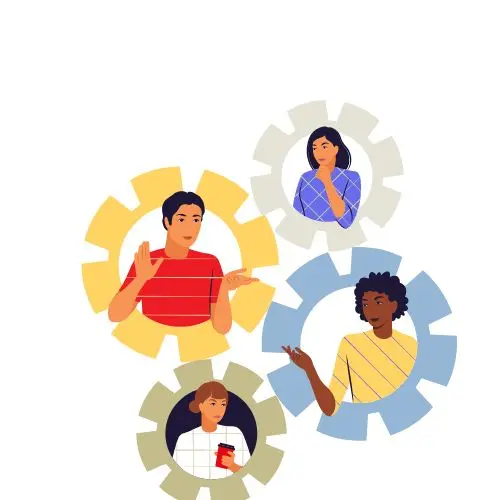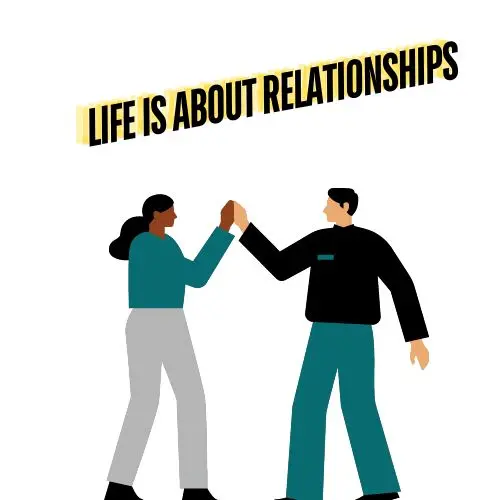Introduction
Relationships are one of the most defining aspects of the human experience. Whether romantic partnerships, friendships, family ties, or professional networks, our connections to others give our lives much of their meaning and purpose. However, cultivating deep, fulfilling relationships takes awareness, effort, and skills that not everyone learns naturally. This comprehensive guide will explore why relationships matter so much and provide practical strategies to strengthen the ones most matter to you.
Statistics About the Importance of Relationships
| Metric | Details |
|---|---|
| Relationship quality impact on health | Strong social connections increase life expectancy as much as quitting smoking and more than obesity/lack of exercise. |
| Happiness correlation | Married people are happier than single and unmarried without quality friendships/family. |
| Income linked to networking | Professionals with robust networks earn more over their careers than those with weaker connections. |
| Mental resilience | Supportive relationships act as a buffer against stress and depression better than professional help alone. |
| Cause of death | Social isolation is as harmful to health as smoking 15 cigarettes a day and is a key factor for early mortality. |
Why Life is About Relationships
Our connections to others play a far greater role in well-being, success, and longevity than many realize. Here are some key reasons why relationships matter so much:
- Evolutionary need for social bonds: As communal mammals, humans thrive with affection, protection, and personal growth from cooperative living with partners and packs over hundreds of thousands of years.
- Source of profound meaning: Strong relationships fulfil one of life’s deepest human cravings – to love and be loved. Partnerships give purpose to life events, from milestones to setbacks.
- Mental health buffer: Social support provides psychological armour against stress through unconditional acceptance, empathy, advice, and companionship during difficult times.
- Physical longevity: Positive social connections reduce inflammation, blood pressure, and stress hormones linked to chronic disease. Feeling connected also promotes healthier lifestyle habits.
- Happiness factor: Marriages and quality non-romantic relationships boost mood, life satisfaction, and optimism through consistent companionship, intimacy, shared experiences, and emotional fulfilment.
- Financial stability: Partnerships naturally foster relational skills and networking that widen career opportunities and prospects for business resources through referrals and collaboration over time.
So, while independence has value, humans are wired for togetherness. According to modern research, nurturing relationships should be a priority for a balanced, resilient, and fulfilling existence. Making intentional efforts periodically makes a big difference.
The Power of Connection

Regular real or virtual contact with our inner circle has incredible impacts on wellness that often go undervalued until isolation hits:
- Stress relief: Venting problems and gaining perspective from empathetic peers lowers cortisol and blood pressure better than solo attempts. Laughter with others also lifts moods.
- Self-worth boost: Quality time with accepting confidants satisfies psychological needs for validation, security, companionship and purpose that financial success cannot replace.
- Health nudge: Friends shape lifestyle habits through encouragement, accountability, and shared activities like sports, cooking, or home improvements.
- Resilience training: Supportive relationships act as an emotional safety net during career slumps, breakups, bereavement, or other crises by buffering anxiety and gradually lifting us out of dark places.
- Longevity perk: Married spouses tend to take better care of their health due to mutual influence and monitoring of wellness markers like weight and risky habits over decades.
So, nurturing social bonds, whether in person or virtually, yields incredible dividends. Studies show that the healthiest adults maintain fairly robust social circles beyond the nuclear family unit well into their 90s.
Types of Fulfilling Relationships

While romantic partnerships often take priority, cultivating diverse quality connections yields the highest life satisfaction. Different relationships fulfill distinct needs:
- Life partners: Beyond intimacy, spouses are invested confidants through life’s peaks and valleys, providing unconditional comfort and fun over decades.
- Friends: Quality friends foster emotional well-being through safe camaraderie outside marriage, adventure buddies, and casual outings downtown or online.
- Siblings: Whether close or distant, siblings satisfy a deep-rooted need for familiarity, nostalgia, and having someone from your genes through milestone events.
- Mentors: Wisdom figures who invest in career coaching, inspirational experiences, and perspective upgrades without judgment add meaning.
- Community: Interacting with like-minded neighbours in residential areas or clubs based on hobbies creates a feeling of kinship and belonging to others.
- Civic ties: Charitable involvement and volunteering create purpose and rewarding lifetime connections, serving others in need together.
- Colleagues: Professionals with shared interests who stimulate growth and foster creative brainstorming boost career success through collaboration.
Balancing these avenues thoughtfully prevents over-dependence and isolated points that harm mental and physical health in the long run, according to psychologists.
Nurturing Partnerships

All healthy relationships require tender loving care to last. Some simple yet powerful techniques to increase closeness include:
- Quality time: Making a partner, friend, or family priority through undistracted conversations, shared activities, and trips strengthens bonds.
- Acts of service: Thoughtful gestures like helping with chores, sending caring notes, and bringing small tokens build trust and demonstrate genuine care for their wellbeing.
- Compromise: Willingness to negotiate perspectives, revisit rigid views, apologize when appropriate, and focus on mutual understanding to smoothen conflicts.
- Compliments: Noticing positive qualities about significant people in our lives and expressing admiration regularly lifts self-esteem and makes them feel valued.
- Touch: Non-sexual affection, such as hugs, kisses, massages, or holding hands, satisfies a human need for tactile expressions of fondness, which are also important for health.
- Shared experiences: Creating first-time joint memories through cultural outings, adventures, skill-building classes, or hobby clubs fosters intimate inside jokes.
- Communication: Deepening bonds requires vulnerability through heartfelt reveals of feelings and active listening skills, including undoing mobile distractions to stay present.
- Patience: Accepting partners as individuals with flaws while tolerating imperfections and differences graciously without unrealistic expectations keeps peace.
Research shows that consistency with these seemingly small gestures sustains closeness through admiration, trust, and quality time, which enhances relationships exponentially in the long run.
Overcoming Relational Hurdles
No bond remains impervious to the tests of time and compatibility issues. Some common challenges include:
- Busy schedules: Balancing priorities like careers, kids, and elderly parents against the desire for quality couple time requires carving out regular quality time together through planning.
- Stress overload: Personal issues weighing partners down prevent deeper connection, so empathetic listening, shared problem-solving, and quality downtime recharge intimacy.
- Unresolved resentments: Past arguments left unaddressed fester into gradual resentment, eroding trust. Nonviolent communication and conflict resolution skills save relationships on the brink.
- Personality clashes: Rigid views, communication foibles, perfectionism, impatience, or addictive tendencies clash and require understanding, compromise, and co-mentorship from calm third parties.
- Life changes: Major adjustments like empty nesting, new careers, and illnesses require sensitive transitioning and rekindling passion through novelty, trying new hobbies together, and showing care in disrupted rhythms.
According to counsellors, with patience, empathy, honest reflection, and expert guidance, almost all bonds can rebuild lost cohesion after setbacks and transitions through meaningful conversations and compromise. Preventing toxic behaviours early strengthens resistance in tough phases.
Cultivating Quality Friendships

While romantic relationships take priority, close confidants nourish us significantly, too. Here are tips for enriching top friendships:
- Match effort: Reach out, schedule dates, send messages, make introductions or assist others as earnestly as they do for equitable reciprocation over time.
- Go deep: Open up about personal wins, struggles, childhood memories, and dreams beyond surface chitchat for the comfort of truly knowing and being known.
- Be present: Silence phones, focus on the company, and ask engaging questions rather than distractedly multitasking during interactions.
- Forgive easily: Expect quirks and allow space for human errors without rigid grudges or toxic guilting that gradually corrode trust.
- Provide value: Support friends through references, care packages in hard times, advice, or skills they admire to build a bank of goodwill through genuine mutual care.
- Share the fun: Laughter strengthens relationships more than duties, so find social activities or hobbies friends enjoy together, like book clubs, game nights, or sports meetups.
With high emotional IQ, regular meetups, and reciprocated quality time, lifelong confidants often become more dependable family than relatives, according to research. Nurturing chosen bonds enriches life.
Conclusion: Healthiest People Invest in People
Relationships represent some of life’s most rewarding investments. While independence matters, humans thrive most with solid social anchoring through spouses, family, mentors, and quality friends. Conscious efforts to understand significant people in our lives better through empathy, acts of service, and shared fun experiences pay off exponentially in well-being, success, and longevity. So prioritizing bonding through quality interactions nurtures resilience against challenges while bringing profound fulfilment found nowhere else in the world. Ultimately, life is truly about people.


2 thoughts on “Why Life is About Relationships?”